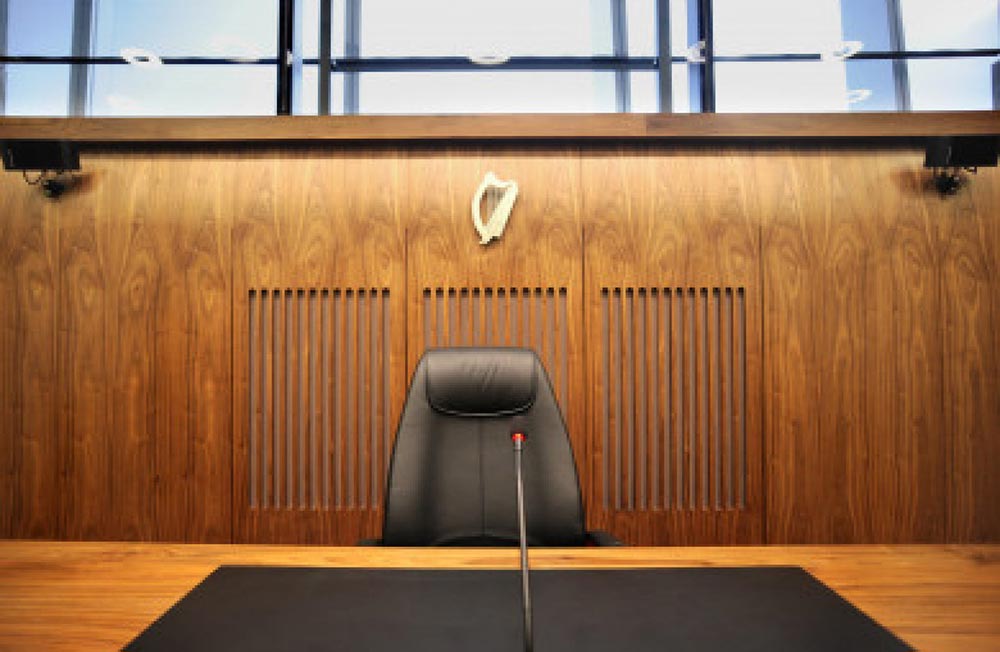The man brought the challenge to the high court after being fined €2,000 for travelling abroad.
AN EU CITIZEN living and working in Ireland has secured permission from the High Court to challenge Covid-19 public health regulations under which a €2,000 fine was issued to him after he travelled to Portugal to help renew his family’s permission to remain there.

The action was brought by Imran Ali, who has Portuguese citizenship, who claims the regulations breach Irish and EU law in being insufficiently clear to enable him to foresee the consequences of his travelling to an airport to leave the State to assist his wife and two sons to extend their immigration permission to remain there.
In a High Court judgement, Mr Justice Garrett Simons ruled that Mr Ali had reached the legal threshold allowing his case to be heard and determined at a full hearing of the High Court.
The judge, noting that the regulations challenged have expired, said the threshold to be met on an application for leave to apply for judicial review is a modest one.
While the court has had the benefit of careful argument, it is not finally determining the application for judicial review.
However, as the factual basis for the present proceedings has been clearly established. the judge said he was satisfied, that an adequate factual matrix has been established which allows the important issues of law raised to be properly adjudicated upon.
The state opposed the application for leave.
The court heard that Mr Ali’s wife and children had remained in Portugal when he came to Ireland earlier this year to work.
He lives in Ballymun and works in a restaurant in Dublin.
In April 2021, he said he was going to Portugal to assist his wife and sons to extend their immigration permission, attended the appropriate office in Portugal and the permissions were extended.
While at Dublin Airport on 19 April 2021, he says, after a Garda asked him where he was going, he showed the Garda emails to explain where he was going and the reason why and was permitted to board the aircraft.
On 6 May 2021, he received a €2,000 Fixed Penalty Notice in respect of an alleged offence committed, contrary to Section 31 A (6) (a) and Section 31A (12) of the Health Act 1947, as amended, on 19 April at Dublin Airport. The notice informed him, if he paid the fine within 28 days, he would not be prosecuted.
He completed a Fixed Penalty Notice cancellation request form but was later told his appeal had been refused.
That refusal letter was received after the 28 days for payment of the €2,000 had expired and he has been informed he would be prosecuted.
He claims a fixed penalty of €2,000 and a fine not exceeding €4,000 and/or imprisonment for up to one month, is disproportionate and in breach of the Constitution and Charter of Fundamental Rights of the EU
A stay was put on his prosecution pending the outcome of his action.
In his action Mr Ali, represented by Conor Power SC and Michael McNamara Bl, claimed there was no means by which he could assess whether the purpose for which he was leaving the State constituted a “reasonable excuse” within the meaning of the relevant regulations, he claims.
He claims he engaged in lawful activity.
However the regulations had unlawfully, irrationally, and disproportionately restrict his travel and family rights under the Constitution, the European Convention on Human Rights Act 2003 and EU law.
The regulations effectively prohibit persons living here from leaving the State without a reasonable excuse, but no such reasonable excuse is required by law to enter the State, he claims. No regard is had to levels of Covid-19 transmission of the area of the EU to which a person is travelling or to the area of the State from which they are travelling, he also says.
In his judgement, Mr Justice Simons said Mr Ali had raised significant issues of law in respect of the entitlement of the legislative and executive branches of government to regulate the rights of EU citizens to exit Ireland.
It is pleaded that the regulations unlawfully restrict the constitutional right to travel and the right to free movement enjoyed by an EU citizen under the Treaty on the Functioning of the European Union, the judge said.
The extent to which these rights may be regulated in the public interest by reference to a public health emergency is something which has, as yet, not been fully considered by the Irish Court, he said.
The issue arose in other proceedings brought by Ryanair, but did not have to be decided in that case in circumstances where the measure impugned in those proceedings was merely advisory rather than regulatory, he said.
The court was also satisfied that the proceedings raise weighty issues of law in relation to the extent to which the Irish State can regulate by reference to a public health emergency—the right to travel and the right of free movement.
None of this is to say, of course, that these arguments will necessarily succeed or that it is disproportionate to impose limitations on a person leaving the State by reference to a public health emergency.
It, he added, is sufficient for the purpose of an application for leave to apply for judicial review to decide that there is an arguable point which should be allowed proceed to the next stage.
The stay on any prosecution of the applicant for the alleged offence under the regulations will be continued, the judge said.
The matter will return before the court later this month.
